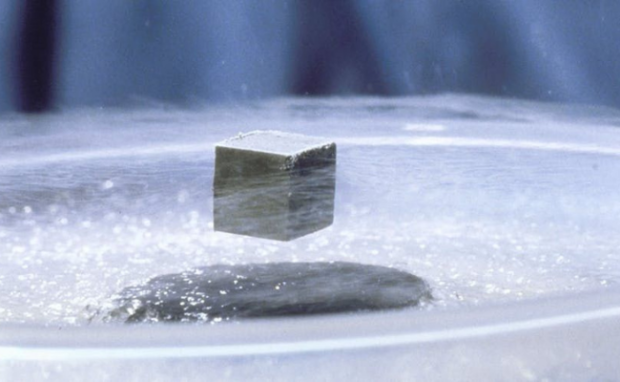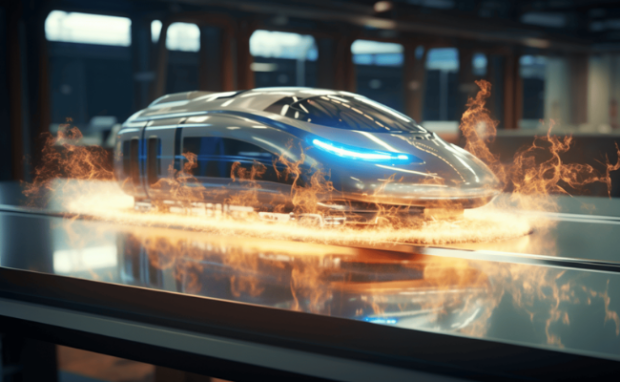Upcoming LK-99 paper will reportedly verify the superconductor
The LK-99 room-temperature superconductor excited the world with its potential before many scientists disproved it. However, its original researcher, Professor Young-Wan Kwon, firmly stands behind his research, explaining the first published paper was incomplete. More importantly, he announced he would release his work’s complete, original version.
Many are still captivated by ChatGPT and other generative artificial intelligence tools. Contrary to popular belief, the most significant breakthroughs often look boring and mundane. The key to humanity’s next technological revolution could be inside a speck floating above a metallic plate. After all, it could transform every device you own, including the offline ones.
This article will elaborate on Professor Young-Wan Kwon’s plan to release the allegedly complete version of his research findings. Later, I will explain superconductors so that readers can understand the significance of one that operates at room temperature.
Why was the LK-99 paper incomplete?

Photo Credit: italy24.press
Brian Wang, the founder of NextBigFuture.com and analyst for Z1 Consulting, reported on the latest LK-99 news. He says Professor Young-Wan Kwon remarked about his room temperature superconductor during his first lecture for Korea University’s new semester.
The tech news reporter translated his comments into English and posted them on the X social media platform (formerly known as Twitter). Here are the professor’s statements:
- Lawrence Berkeley’s way is the way I did it.
- Only Lee Seok-bae can create Lk99.
- All simulations have come out for 20 years, and [the original team] is already aware of all the rebuttal [and issues made by the other world labs].
- Kwon and Lee have a decent relationship. It is not a bad relationship. [There were rumors that Kwon published without consent and was out of the team].
- Due to length restrictions, I [Kwon] only wrote half the paper; there’s much more detail remaining.
- I’ll [Kwon] will continue publishing papers later and show the real deal [room temperature super conductivity].
- @Nature @dangaristo’s statements are nonsense.
- If Lk99 could have been easily developed by others, it would have already been created.
Wang said NextBigFuture.com discussed the original LK-99 patent and papers, briefly mentioning their thin film work and measurements. The original researchers said the thin film chemical vapor deposition process is the only one with superconducting resistance.
You may also like: How to check PC temperature
The film is microns thick and nearly half superconductive material. However, the peer-reviewed LK-99 paper’s initial release only briefly discusses it.
Wang says it is the most important part because “only the chemical vapor deposited thin film has the zero resistance superconducting measurement.” Also, he defended these findings against replications from other laboratories.
In August and September 2023, they concluded that LK-99 wasn’t a superconductor at any temperature. However, they only made bulk non-thin film samples.
Why were scientists excited about LK-99?

Photo Credit: innovationorigins.com
Most people would scoff at a speck floating above a metal surface, so why are scientists worldwide eager to replicate it? You’ll understand why once you know more about conductors.
Nowadays, all our devices operate with conductors, materials that enable electricity to flow through them. For example, your phone charger has copper wires, which are conductors.
However, most materials have resistance, the tendency to block a specific amount of current. Their atoms move and bump into each other as they receive electrical charges.
That movement exhausts energy flowing through them, so a gadget receives less energy. Yet, we’ve adjusted to resistance to create modern devices.
Some have created superconductors by subjecting a conductor to extremely low temperatures. The cold prevents atoms from moving too much, enabling more energy to flow.
Simulating that condition takes significant money, so only research organizations and tech firms can afford it. What if we create a superconductor that can work at room temperature?
We could drastically improve the performance of modern gadgets. For example, we may incorporate it into smartphones so they could have more processing power than desktop computers.
You may also like: Scientists discover new form of superconductivity
After all, a room-temperature superconductor reduces the chances of overheating due to increased computational power. Another cool possibility is faster magnetic levitation trains.
Take Japan’s Chuo Shinkansen bullet train as an example. The Institution of Engineering and Technology says it reaches speeds of up to 500km/h (310mph), cutting current journey times by more than half.
It uses superconducting technology to enable the locomotive to move without rail friction. If LK-99 turns out to be true, it could enable the Shinkansen to operate outdoors in summer.
Conclusion
LK-99’s original researcher said he would release the complete version of the room-temperature superconductor. Professor Young-Wan Kwon claims it will prove his research validity.
The complete LK-99 paper will allegedly show the material exhibits superconductivity despite other experts disproving it. He hasn’t released it at the time of writing.
You can learn more about how the room-temperature superconductor works by clicking here. Also, check out other digital tips and trends at Inquirer Tech.














